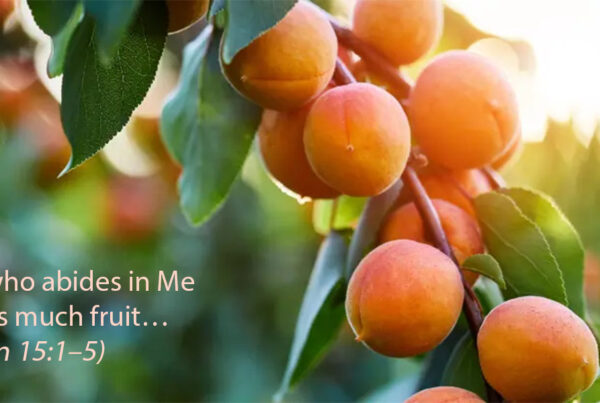The Lesson of the Fig Tree
Part Two

“Now in the morning as he returned into the city, he hungered. And when he saw a fig tree in the way, he came to it, and found nothing thereon, but leaves only, and said unto it, let no fruit grow on thee henceforward for ever. And presently the fig tree withered away”
Matthew 21:18-19
The lesson of the fig tree is one of great value to those who seek truth. Its message is for our growth and development.
Jesus came to the fig tree looking for figs. He came looking for fruit consistent with its capability. So it is with us. The righteousness of God prevents Him from an expectation that is beyond the ability of the tree to produce. The God who measures the talents to every child of His according to their ability, is the same God who holds each of us accountable to Him for that gift. This truth brings our accountability into perspective. It is also meant to be instructive to us as parents and ministers of God that we walk in His wisdom regarding the lives of our own children and of every believer. We are not to expect Paul to minister as Peter, nor Jude to speak as Apollos. Such expectations are the result of religious doctrines and confines. The Life of Christ within regards the individual gifts and capacities of others and looks for the corresponding fruit. When the fruit of an individual is consistent with the call and the gifts of God given, there should be a collective rejoicing unto the Giver of all good things. When the fruit of a life is missing or lacking the vitality of its call and capability, there is great need for the ministration of exhortation and admonition. Ministers who fail in this vital aspect of ministry will find themselves accountable to the Chief Shepherd of our souls.
Stewards and Shepherds
We are stewards of the grace of God and as such we are to shepherd His flock with a desire to see Him glorified in each and every child of His. It requires a pure heart to walk in such things knowing full well our own accountability unto Him. The fear of the Lord is the ground upon which His true ministers walk and function. John the Apostle declared that he had no greater joy than to “see his children walking in truth”; the truth of what has been given to them. The one who has been given prophetic insight, that is the thing to which God will hold them accountable (1-see below). The one who teaches must teach the truth of God to the end that every life will grow in the holiness and wisdom of God. (2-see below). Those who exhort must do so with purity and simplicity (3-see below) As to the Apostolic, there is to be a faithfulness to call God’s people to the obedience of faith (4-see below). The list is as endless as the diversity of God’s creation.
(1) “Having then gifts differing according to the grace that is given to us, whether prophecy, let us prophesy according to the proportion of faith” (Romans 12:6)
(2) “Whom we preach, warning every man, and teaching every man in all wisdom; that we may present every man perfect in Christ Jesus” (Colossians 1:28)
(3) “Beloved, when I gave all diligence to write unto you of the common salvation, it was needful for me to write unto you, and exhort you that ye should earnestly contend for the faith which was once delivered unto the saints” (Jude 1:3)
(4) “By whom we have received grace and apostleship, for obedience to the faith among all nations, for his name” (Romans 1:5)
In the book of Romans, Paul exhorts God’s people to receive all of these diversities as the gifts and the wisdom of God. Those who refuse these expressions deny God’s wisdom and subject themselves to His judgment. Division is the result of man’s wisdom and pride.
“Only by pride cometh contention…”
Proverbs 13:10
The Lesson of the fig tree is that He comes to each of us looking for corresponding fruit. His expectation is consistent with His grace given. In the Parable of the Talents, the man with one talent was judged severely for his faithlessness to the gift given (Matthew 15:30). In the Parable of the Vine, the branch which bore no fruit was “cut off” (John 15:2,6). The lesson of the Fig Tree was meant for our admonition and learning to that same end.
The response of Jesus to the two individuals who were faithful to their respective talents was the same! Different talents yet the same reward for their faithfulness to God’s measure.
“His lord said unto him, ‘Well done, thou good and faithful servant: thou hast been faithful over a few things, I will make thee ruler over many things: enter thou into the joy of thy lord”
Matthew 25:21,23
The purpose of these diverse ministrations is:
“That ye might walk worthy of the Lord unto all pleasing,
being fruitful in every good work…”
Colossians 1:10
Brian Troxel




Well said my brother
Well said my brother